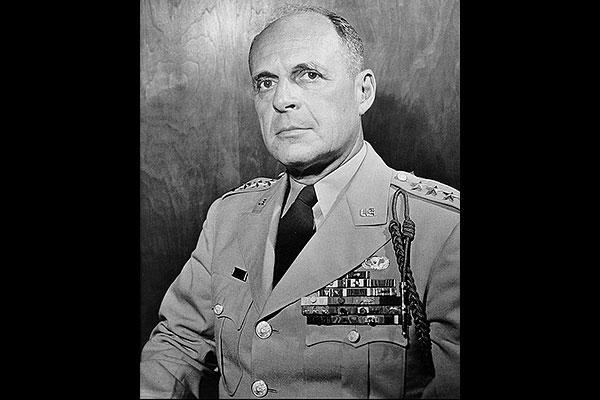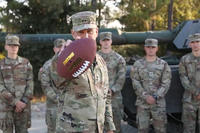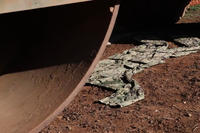"The Old Army is finally dead and departed," Murray Kempton of Newsday wrote in 1993. "The funeral of Gen. Matthew B. Ridgway has to be its last rite. He was 98 and had buried every comrade who had served with him ..."
Ridgway led airborne forces in Sicily and Normandy, and United Nations troops in Korea. He served as Chief of Staff of the Army. Yet he felt that nothing could compare to his "earliest memories" as an Army brat of "rising to ... reveille ... and lying down to ... the sweet, sad notes of 'Taps.' " Ridgway reveled in the life of a soldier, down to his customary accouterments of live grenade and first aid kit. "They were purely utilitarian," he said. "Many a time in Europe and Korea, men in tight spots blasted their way out with hand grenades."
Ridgway's greatest effort and success came in 1950, when Lt. Gen. Walton H. Walker, commander of the 8th Army in Korea, was killed in a jeep crash. In less than 48 hours, Ridgway, who had been in the largely diplomatic post of commander in chief of the U.S. forces in the Caribbean, arrived in Korea to rally the then-reeling 8th Army troops.
Ridgway's command was in full retreat across the 38th parallel. A massive Chinese counteroffensive, heavy losses, and bitter cold had brought morale to an all-time low. Ridgway remained at the front, exhorting his troops to concentrate on the enemy rather than on lost ground. In a series of common-sense counteroffensives, he used his soldiers to seize strategic territory north of the 39th parallel.
Despite his famous disagreement with Gen. Douglas Macarthur and a disappointing tenure as Chief of Staff, Ridgway remained loyal to the Army way. In 1986, the old soldier was awarded the Presidential Medal of Freedom. Its citation read: "Heroes come when they are needed. Great men step forward when courage seems in short supply."
Related links:












.png.jpg?itok=nzmdKJW7)



